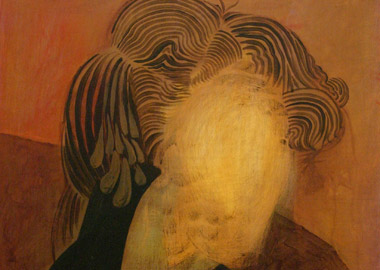The name Herman Melville is all but synonymous with his masterwork, Moby Dick, that sprawling tale of a mad captain and his all-consuming pursuit of a white whale. And the undisputed master of 19th-century tales of the Mississippi is Mark Twain. Look past Melville’s works of ocean-going madmen, however, and you’ll find The Confidence-Man, his last novel, which seems like a cousin to the works of Twain. In its pages, Melville weaves the tales of a cast of characters steaming their way down the Mississippi toward New Orleans.
Online at melville.org, you’ll find a sampling of reviews from the year of the book’s release, 1857. In prose that’s often more florid than that of the famously complex stylings of Melville, several reviewers weighed in to decry The Confidence-Man as rambling and sketchy, even beyond all comprehension. Intoned the London Literary Gazette, for instance: “We are not denying that this tangled web of obscurity is shot with many a gleam of shrewd and subtle thought—that this caldron, so thick and slab with nonsense, often bursts into the bright, brief bubbles of fancy and wit. The greater the pity to see these good things so thrown away… .”
Some reviewers even seem to have missed a salient fact: the book is, basically, a satire. Melville demands close attention; his sentences are peaks to be scaled. The first chapter of The Confidence-Man offers this singular sentence: “Stared at, but unsaluted, with the air of one neither courting nor shunning regard, but evenly pursuing the path of duty, lead it through solitudes or cities, he held on his way along the lower deck until he chanced to come to a placard nigh the captain’s office, offering a reward for the capture of a mysterious impostor, supposed to have recently arrived from the East; quite an original genius in his vocation, as would appear, though wherein his originality consisted was not clearly given; but what purported to be a careful description of his person followed.”
Yet the book is, once you get used to the expansive scribings of the age, unusual and entertaining in a thoroughly modern way. It’s not quite a coherent novel in the traditional sense, but rather a piling up of small-scale anecdotes about the travelers and their con games. The complex style becomes occasion for amusement more than confusion, and even the chapter titles are wry—chapter 35 is called “In Which the Cosmopolitan Strikingly Evinces the Artlessness of His Nature.”
This last of Melville’s longer works is the subject of an art exhibition in Pittsfield, and the city celebrates many an aspect of its famous resident (The Confidence-Man was written there, as was Moby Dick) all summer in an effort dubbed Call Me Melville. Williamstown artist Doug Paisley’s exhibition, also called The Confidence-Man, comprises paintings on panel and drawings, all depicting characters from Melville’s satire.
The paintings are, like the book, an unusual combination of an old-fashioned sort of Americana and a sophisticated and modern sense of style. They seem to hail, in some ways, from the stiff, sometimes primitive portraiture of the colonial era. That sense is undercut by renderings of hands caught in mid-gesture and rubbed-out faces, both of which play with the viewer’s attention in some lively ways. Paisley seems to have captured a certain essence of Melville’s work, and his paintings are a high point in Pittsfield’s summertime embrace of all things Melville.
The Confidence-Man: Through July 28, Lichtenstein Center for the Arts, 28 Renne Ave., Pittsfield, (413) 499-9348, www.discoverpittsfield.com, callmemelville.org.



